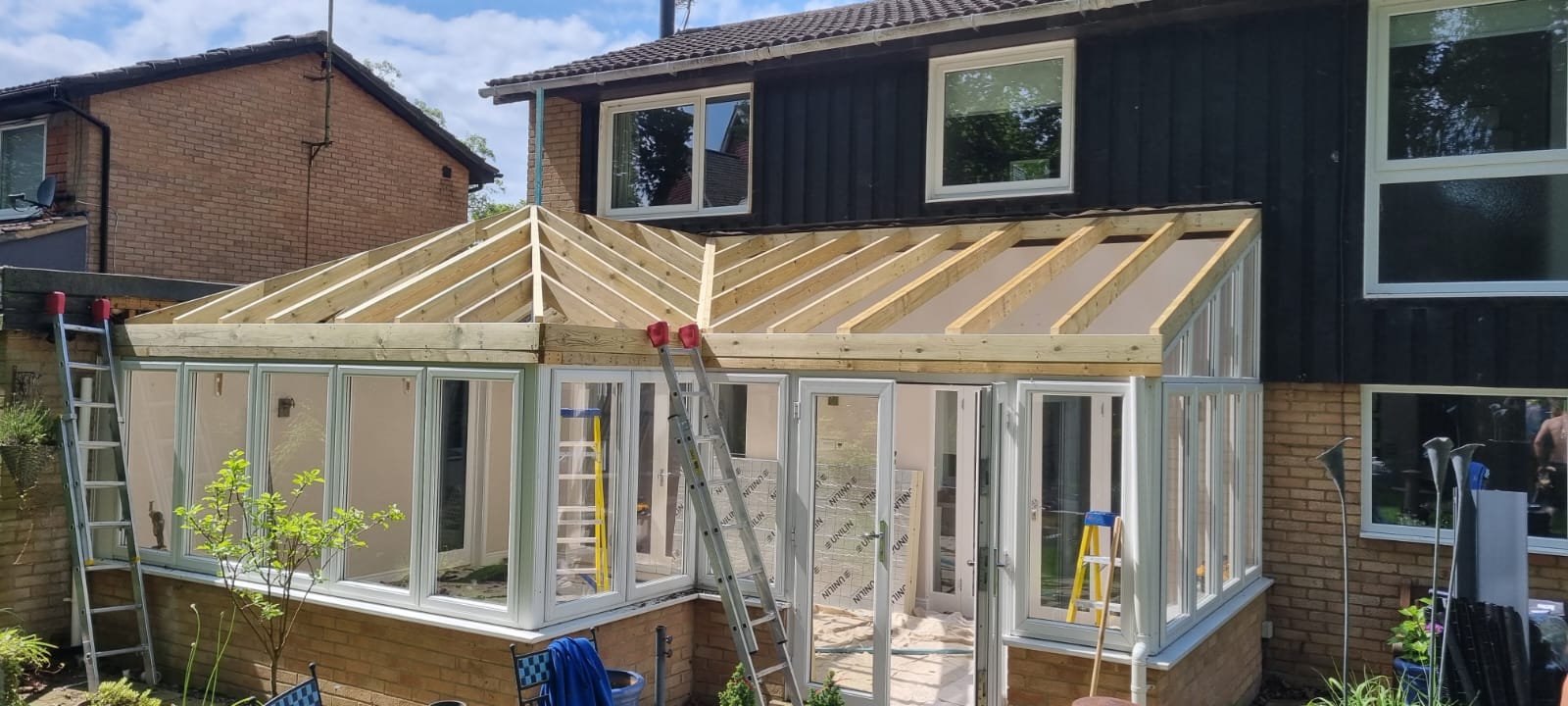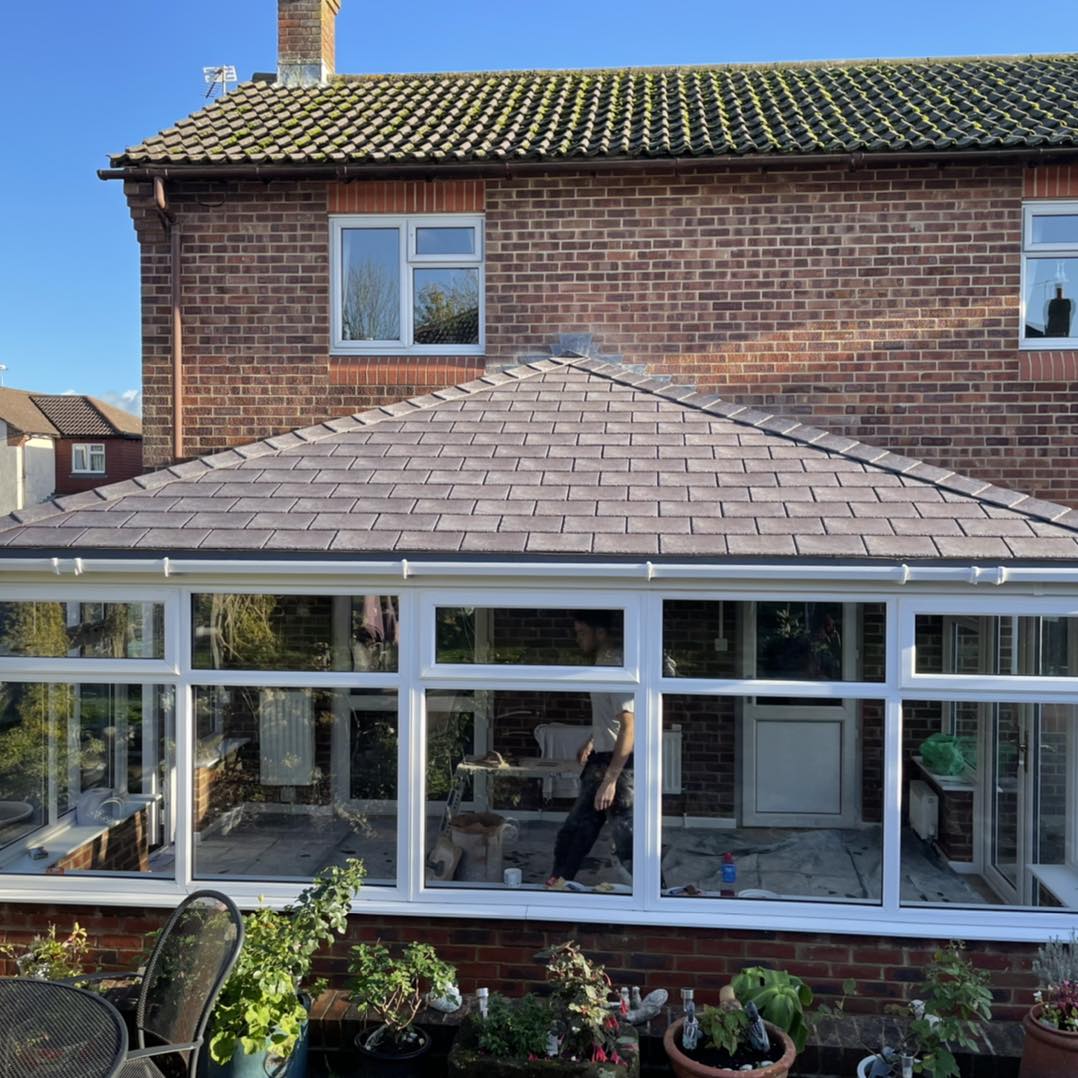Your conservatory is a valuable part of your home, offering a versatile space that bridges the gap between indoors and outdoors. If you’re planning to replace or upgrade your conservatory roof, one significant decision you’ll face is whether to go for a polycarbonate or tiled roof. In this blog, we’ll explore the pros and cons of these two popular conservatory roofing options and how Solicon Conservatory Roofs can help you make the right choice.
Polycarbonate Conservatory Roofs
Pros:
- Cost-Effective: Polycarbonate roofs are generally more budget-friendly compared to tiled roofs, making them an attractive option for those on a tight budget.
- Lightweight: Polycarbonate roofing materials are lightweight, which can be an advantage in terms of structural support and installation.
- Good Light Transmission: Polycarbonate roofs allow natural light to filter through, creating a bright and airy conservatory space.
Cons:
- Limited Insulation: Polycarbonate roofs have limited insulation properties, which can result in temperature fluctuations. They can become too hot in summer and too cold in winter.
- Shorter Lifespan: Polycarbonate roofing materials may have a shorter lifespan compared to tiled roofs, which can lead to higher long-term maintenance costs.
- Noise: Heavy rain or hail can create significant noise on a polycarbonate roof, potentially affecting the tranquility of your conservatory.
Tiled Conservatory Roofs
Pros:
- Excellent Insulation: Tiled roofs offer superior insulation, ensuring a more stable and comfortable indoor climate year-round.
- Durability: Tiled roofs are known for their longevity and can last for decades with minimal maintenance.
- Aesthetic Variety: Tiled roofs come in a wide range of styles and colors, allowing you to match your conservatory with the rest of your home’s architecture.
Cons:
- Higher Cost: Tiled roofs tend to have a higher upfront cost than polycarbonate roofs. However, the long-term savings in energy costs and maintenance can offset this expense.
- Heavier Weight: Tiled roofs are heavier than polycarbonate roofs, which may require additional structural support during installation.
- Reduced Light: Tiled roofs block some natural light, which can make the conservatory space darker compared to polycarbonate roofs.
The Solicon Advantage
Solicon Conservatory Roofs offer a unique advantage by combining the best of both worlds. With Solicon, you can enjoy the benefits of a tiled roof’s excellent insulation while still maximizing natural light transmission. Here’s how:
- Advanced Insulation: Solicon Conservatory Roofs are designed with advanced insulation materials that provide superior temperature control, keeping your conservatory comfortable in all seasons.
- Innovative Glazing: Solicon roofs incorporate innovative glazing solutions, including roof windows and skylights, to ensure that your conservatory receives an ample amount of natural light.
- Aesthetic Customization: Solicon offers a variety of tile styles and finishes, allowing you to customize the look of your conservatory roof to match your home’s aesthetics.
In conclusion, the choice between polycarbonate and tiled conservatory roofs ultimately depends on your budget, insulation requirements, and aesthetic preferences. However, Solicon Conservatory Roofs offer a compelling alternative that combines the advantages of both options, providing excellent insulation, abundant natural light, and a customizable appearance. When considering your conservatory roof replacement or upgrade, Solicon can help you strike the perfect balance between comfort, aesthetics, and value.




